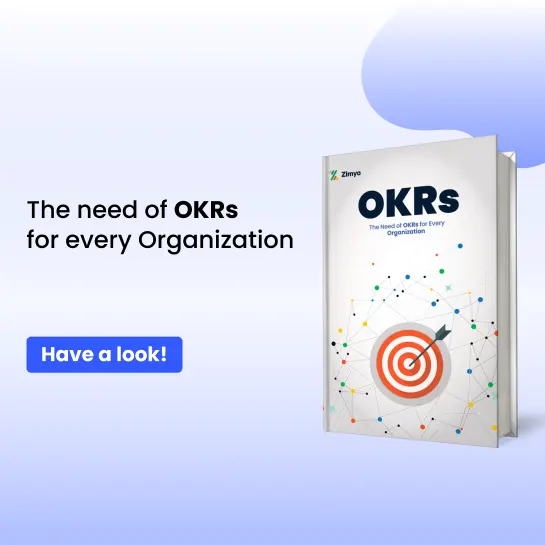When it comes to how companies are dealing with it, last year was undoubtedly a shock, but this year, the corporate sector is gearing up with better preparation and a more effective approach to stay competitive. Above all, ensuring employee engagement and retention is a priority for almost every organization.
Apart from the mental health measures, things that were promised last year — higher wages, appraisals, and promotions – are now being implemented! As a result, technological adoption is at an all-time high, making HRMS software, payroll management software, and other similar services an unavoidable component of any business.

The notion that there are only two ways of making money in business — reducing costs or raising sales, leads to the hope that employee layoffs would provide monetary advantages. As a result, most companies’ first intuitive reaction in 2020 was to reduce their workforce strength as a strategic action to address the issue.
But does this method produce the intended outcomes?
Employee Layoffs: A Distant Memory
“Researches have tracked the performance of downsizing companies in comparison to non-downsizing companies for as long as nine years after a downsizing event. The findings: As a whole, the downsizing companies never outperform the non-downsizers.” – SHRM
There have been countless instances where layoffs were just a cloning strategy as corporations attempt to imitate their competitors. Most of the time, if a business intends to stay competitive, cutting salaries to reduce operating costs appears to be the only alternative.

Organizations that have seen significant gains from employee layoffs and restructuring business procedures, on the other hand, become models for how the system works, ignoring the thousands of companies that have cut payrolls but are still struggling. The point is that no one looked into how the exceptions did well, instead opted to continue down the same route blindly and ultimately failed.
Employee Layoffs Hurt Businesses
Here’s a fact check!
“In 2008, over 3 million people in America lost their jobs. However, no layoffs were reported by 81 percent of the top 100 corporations on Fortune’s 2009 ranking of “Best Employers to Work For.”
A decreased payroll or layoffs, in contrast to enhanced benefits, often has the following drawbacks:
- As a result of fewer salesmen, there is a loss of revenue.
- Several direct and indirect costs are incurred.
- Shortage of new products as there are very few R&D professionals.
- When top performers leave, production suffers as employee morale plummets.
Employee layoffs with such adverse outcomes might have a significant impact on a company’s profitability. Layoffs can result in a variety of situations, including:
- Low employee morale and disengaged workforce
- Increased employee burnout and mental stress
- Poor performance by employees and the company
Employee Layoff Isn’t the Answer!
Have you ever had to make a mortgage payment? If you answered yes, you should be aware that future expenses are more predictable than future income.
So, to use an analogy, some companies believe that payroll expenses are fixed costs (the other factors remain equal), and therefore decreasing payroll will lower expenditure, resulting in improved revenue. As a result of these earnings, stock prices will rise, making analysts and investors pleased!

However, the relevant point here, “other factors remain equal,” isn’t always accurate. Many employers regard employees solely as a cost to be avoided, oblivious to the value they bring. As a result, “the other factors” mentioned here frequently do not remain equal, and many of the expected outcomes of employee layoffs do not materialize.
The Comeback of Appraisals and Promotions
According to recent research, 59 percent of Indian companies aim to grant salary increments to their staff in 2022, with some organizations already doing so.
Some major corporations even claim that, in addition to providing salary hikes to existing staff, opportunities for new hires and replacement hiring are on the horizon. It simply indicates that organizations today are fighting back with vigor and intend to expand and strengthen their workforce rather than sit back and wait for the virus to go away.

Managing a company that has been impacted by layoffs or compensation reductions is difficult. Furthermore, employing fresh talent and making critical payroll decisions are additional responsibilities.
The Growing Role Of HR In The Pandemic
Doesn’t all of this appear to be extra work for HR? As a result, the Human Resource Department enters the picture and takes center stage. HR professionals have taken the front seats, buckled up, and are ensuring that procedures run smoothly throughout the firm. And, unquestionably, well-equipping and empowering HR staff is a prerequisite if you want to stay on top!
The ever-growing function of HR is due to the following new requirements:
- New changes demand smooth communication
- Employee retention and rehiring
- Redistribution of roles and responsibilities
- Recruiting and onboarding new staff are two of the most time-consuming aspects of the job
- Retaining people via upskilling and training them
- Tracking and evaluating staff performance
- Streamlining consumer relationships
- Workplace and salary policy alterations
- Pay and benefit adjustments
- Changing the payroll system to reflect the new payouts
- Ensuring employee satisfaction and engagement
- Redefining business objectives and goals
The Need Of An Adaptable Payroll Software
After you’ve comprehended how these trying circumstances have compelled HR professionals to stay on their toes at all times, the next step is to realize how payroll software plays a critical role in this. To get to the topic, let’s look at where an organization falls short when it comes to payroll management.

Challenges Of A Traditional Payroll Software
- Inability to classify employees as per workforce type or department
- Failure to synchronize details of time and attendance, performance reviews, and financial factors during payroll management
- Integrating salary increment information with final payroll data is complex
- Inaccurate computations, deductions, and salary processing are inefficient
- Inaccurate payroll-related information causes payout difficulties
- Integration of appraisal data into the payroll system for computations has been long overdue
- Non-compliance with statutory deductions such as EPF, ESI, PT, LWF, and others, as revised by law
- Payroll-related requests are either delayed or never resolved due to a lack of proper payment information
Because most of the extra and elevated burdens that HRs undertake in such difficult times revolve around overall business finance management, effective payroll management becomes a necessity.
For this reason, if you haven’t yet integrated the most up-to-date payroll system with cutting-edge technology, now is the time! Let’s look at why having a top-notch payroll management system at your disposal is so important, and how it keeps things running smoothly during these pivotal times.
Advantages Of An Integrated & Adaptable Payroll Software
- Changes in job titles and pay modifications
- Changes in work/shift hours are captured and saved, and time and attendance information is synchronized
- Arrears are evaluated and prepared to compensate for pay decreases
- Calculates each employee’s final payout/salary accurately and automatically processes salaries for direct deposit
- Registers and resolves payroll issues
- Financial and other software/platforms are integrated
- Ensures that all tax laws are followed
Conclusion
We’ve come a long way in a short time by shifting from laying off people to preparing them for the worst-case scenario and rewarding them when it’s needed the most. We hope you had employed effective techniques to conduct layoffs and treated your departing employees compassionately and with respect if it was your final option.
However, if you want to stay with your workforce throughout the thick and thin, you must be proactive. The sentiments and demands of layoff victims, new hire training, and hardworking employees’ performance evaluations must all be considered. Last but not least, HR professionals must adapt to technological developments such as HR and payroll software to make the most of these opportunities and combat the challenges that they face.






